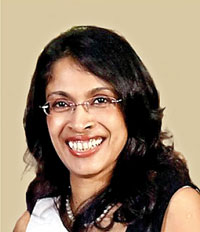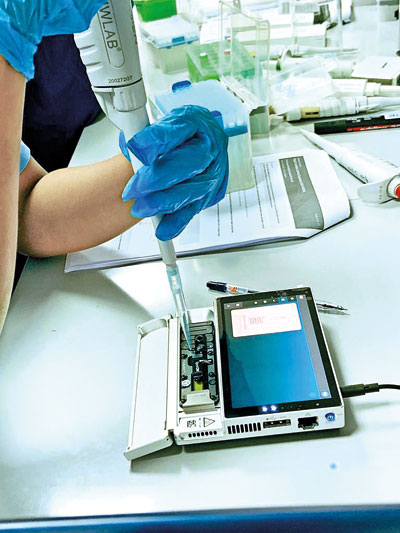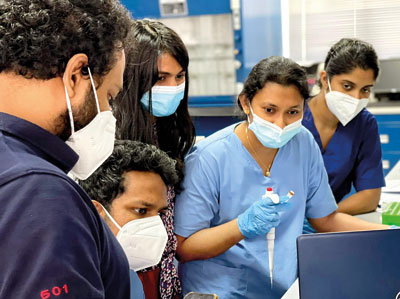News
Madiwela’s variant – confirmation beyond doubt next week

Prof. Neelika Malavige
There is a “high possibility” of a person from Madiwela having the COVID-19 Delta (Indian) variant, said expert Prof. Neelika Malavige, pointing out that they can be “absolutely sure and confirm beyond doubt” only when genetic sequencing is carried out next week.
The genetic sequencing results would come out at the end of next week, the Sunday Times learns, because it is a tedious and time-consuming process.
The only laboratory performing genetic sequencing in Sri Lanka is at the Department of Immunology and Molecular Medicine, University of Sri Jayewardenepura (USJ).
Making a strong appeal to other laboratories (hospital and university labs) to take up genetic sequencing, Prof. Malavige, Head of the Department of Immunology and Molecular Medicine, said that they would be very happy if sequencing is not limited to their laboratory. There is a demand that their laboratory alone cannot meet.

The only laboratory performing genetic sequencing in Sri Lanka is at the Department of Immunology and Molecular Medicine, University of Sri Jayewardenepura
Mutation detection & nanopore sequencing
With regard to the Madiwela positive person, she said that when they got the sample, they used the test kits they had recently secured which can detect the mutations of the variants of concern (VOCs), Delta as well as Alpha (the United Kingdom one). From the initial screening it appeared likely that it is the Delta variant.
Prof. Malavige said, “While using these mutation-detection kits to identify VOCs rapidly, our laboratory has also started using low-cost nanopore sequencing technology to carry out whole genomic sequencing of SARS-CoV-2. This will help USJ to ramp up sequencing.”
Describing ‘nanopore sequencing’ as a unique new generation sequencing technology, Prof. Malavige says that it had been developed by Oxford Nanopore Technologies Ltd., in the UK to carry out real-time analysis of DNA (deoxyribonucleic acid) and RNA (ribonucleic acid). Such sequencing, extensively used in over 80 countries, provides rich data speedily in real time and the cost of analysing a sample is significantly cheaper.
The nanopore sequencing platform and reagents required to sequence an initial 384 COVID-19 samples have been donated by Dr. Lakmal Jayasinghe, Vice President of Research and Development of Nanopores at Oxford Nanopore Technologies. This is while Hela Sarana, a UK-based charity, had donated an additional piece of equipment required to start the sequencing project.
She explains that after getting a heads-up from the initial screening that the Madiwela patient’s sample was infected with the Delta variant, they are carrying out genetic sequencing to be absolutely certain.
As they are getting samples from across the country in a systematic manner now, they will run 96 samples (the full capacity) through the sequencer next week, she added.


